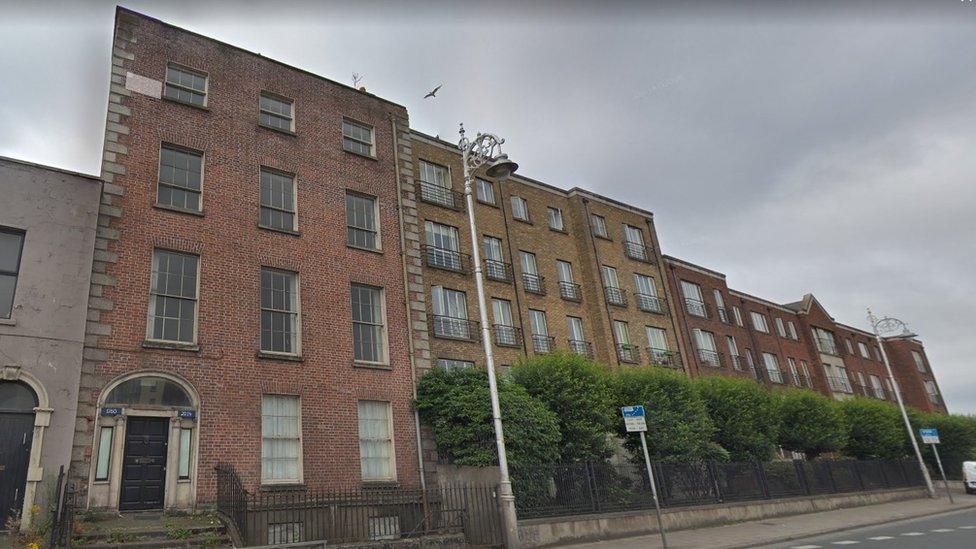Ulysses: Celebrating James Joyce, 'the quintessential European'
- Published
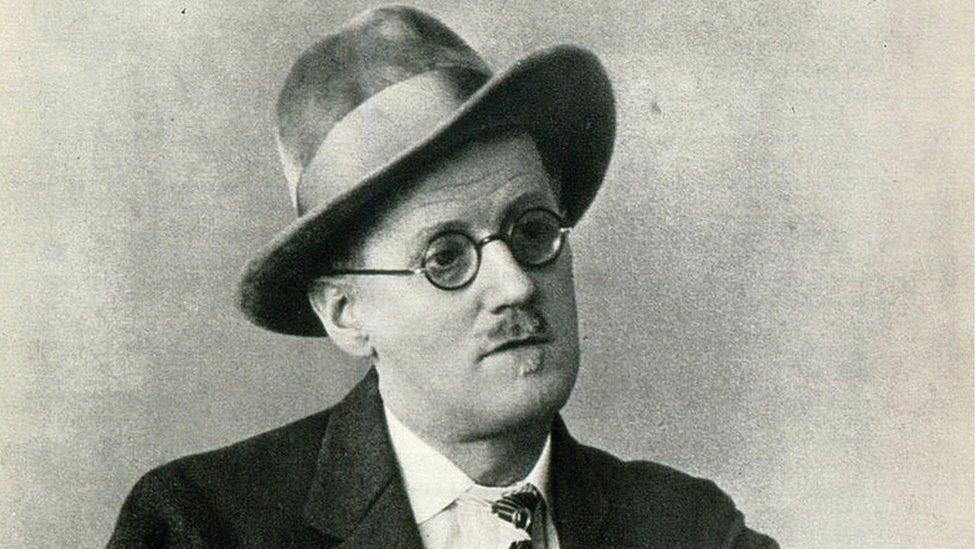
James Joyce's most famous novel, Ulysses, was published in 1922
In 2022, the centenary of James Joyce's Ulysses, two arts festival curators set out on an odyssey across Europe.
Their aim was to prove that Joyce's masterpiece is more than the great Irish novel - that it is quintessentially European.
Seán Doran and Liam Browne are celebrating Ulysses over two years and across 18 cities.
The novel, published on 2 February 1922, is set on a single day in Dublin and mirrors Homer's Odyssey.
Doran and Browne wanted a celebration of Joyce's novel that stretches far beyond Ireland's shores.
Ulysses: A European Odyssey, external (UEO) is a celebration that zigzags across Europe, stitching together communities and ideas; art and lived experience.
The men, both from Londonderry in Northern Ireland, are known as Arts Over Borders, external.
They made their name as arts festival curators under the name DoranBrowne.
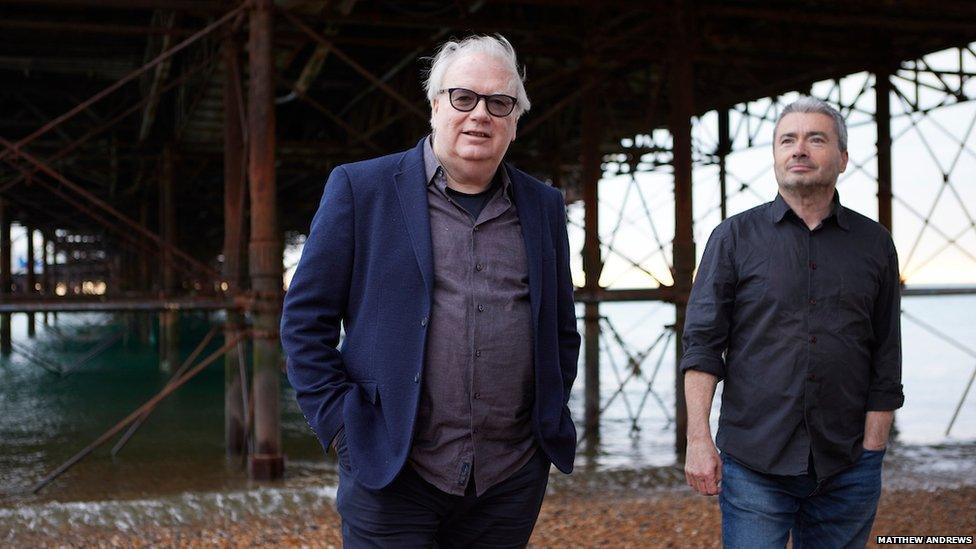
Seán Doran and Liam Browne are arts festival curators
They created the Happy Days Enniskillen International Becket Festival; Lughnasa Friel Fest and A Wilde Weekend.
But with UEO, their ambition took flight.
"Joyce was the quintessential European," said Liam.
"Most of his adult life was spent in mainland Europe.
"Trieste - when he was there - would have been a melting pot of nationalities.
"Dublin was the city of his imagination, but the physical places where he was eating and sleeping were European cities."
Joyce's listing of Trieste, Zurich and Paris at the end of Ulysses was very deliberate, he said.
The men secured €1.72m (£1.48m) in EU funding for the €3m (£2.58m) project through Creative Europe, the European Commission's flagship culture programme.
Their lead partner on the project is Claudia Woolgar of Stitching Brave New World Producties (BNWP) in the Netherlands.
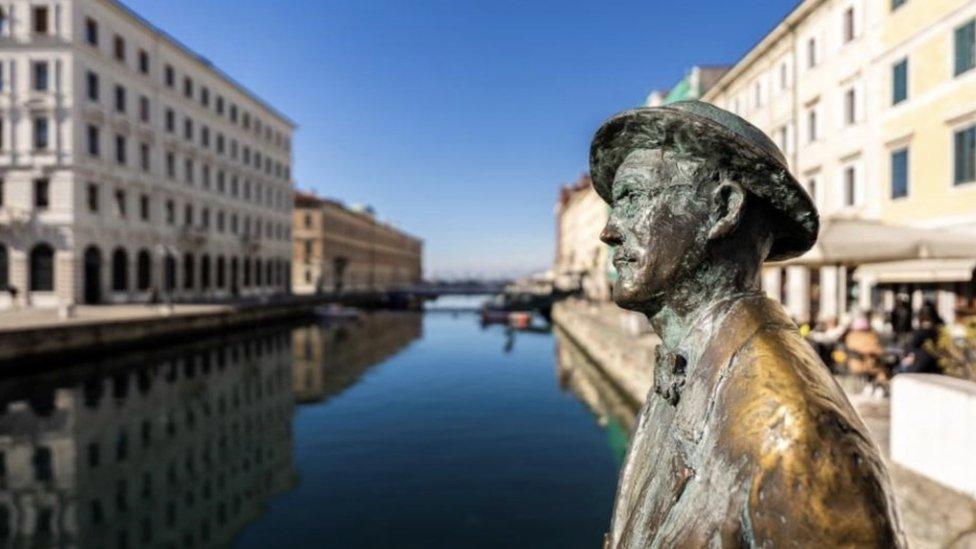
The project organisers came together for the first time in person in Trieste - a city that was Joyce's home for many years
When they met prospective partners for their project, it was clear that many viewed Ulysses as European too.
Each city celebrates one of the 18 episodes in Ulysses mirroring the Odyssey.
It was fitting that the venture launched in Greece in September 2022, with an Irish twist.
Sing To Us O Muse featured Irish musician Liam Ó Maonlaí and Greek singer Chrysoula Kechiagioglou.
They sang in Greek and Irish at sunrise in sight of the Acropolis.
The first project brought together Palestinian and Syrian refugees, artists, scholars and a civil engineer to talk about the Joycean themes of migration, memory, histories and political and urban landscapes.
In October, the spotlight switched to Marseille for a performance around immigration and integration, staged in a city that has sheltered 100,000 immigrants.
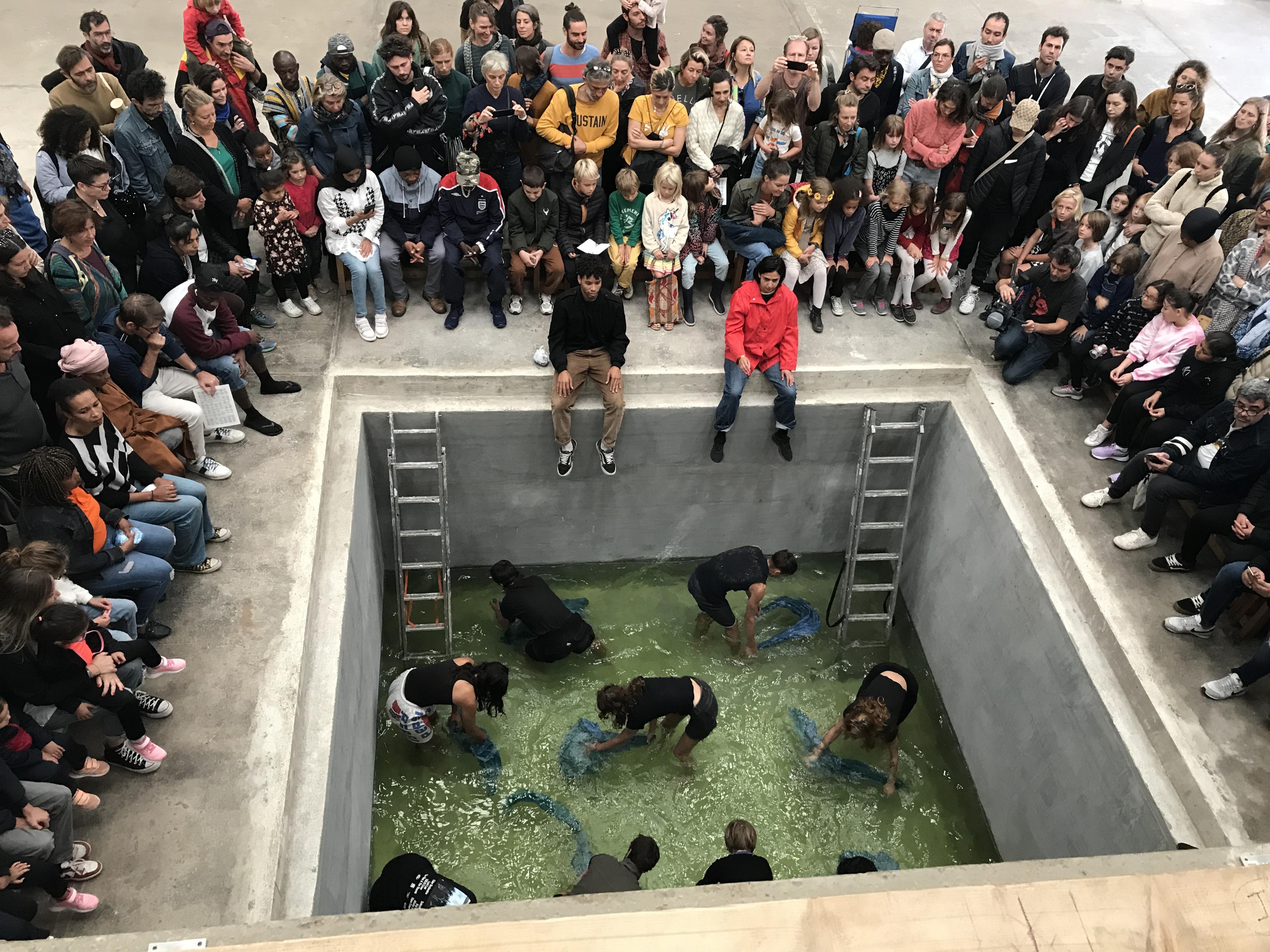
In Marseille, young people explored the themes of immigration and integration
So the adventures began.
No matter that some of those taking part across Europe have not read Ulysses.
"Joyce saw it as a novel for every man and woman," said Liam.
"He was not writing for academics. There is a lot of humour and human warmth in the book.
"A lot of our partners had not read it, but they are going and reading it now."
Each city has a specific Joycean theme - from migration to mental wellbeing, from gender freedom to the concept of home and on to the female vision in Molly Bloom's soliloquy - and all ring true in the 21st century.
These are contemporary themes despite the time gap, he pointed out.
The organisers said it was important that people who do not normally engage with the arts would be welcomed.
This is not an "arts-only" project.
Public spaces had to have a role as they do in Ulysses - a library, a hospital, a school, a cemetery and the very city streets.
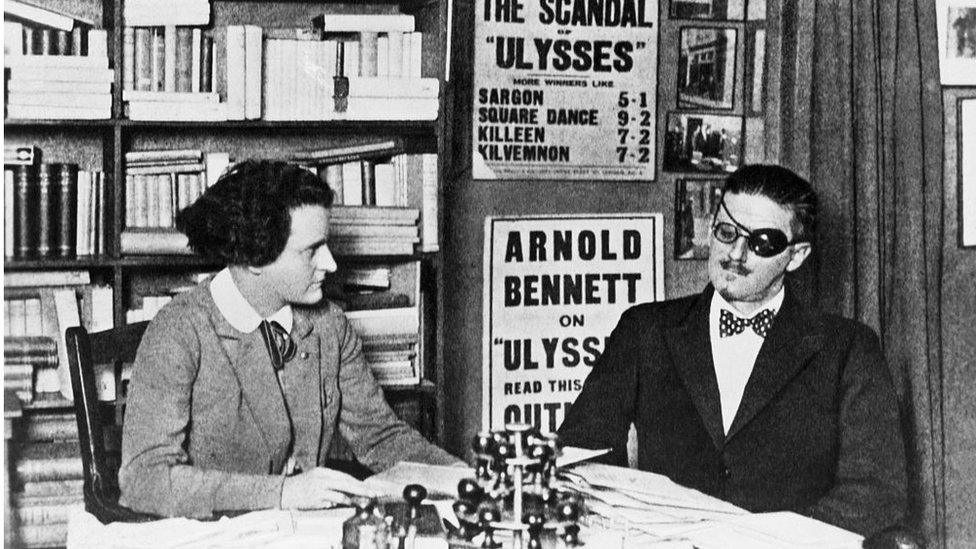
James Joyce with Ulysses publisher Sylvia Beach in 1920 shortly after he moved to Paris
"Joyce believed that engaging with the city is a form of civilising you... you change and enrich yourself as a person," said Liam.
"Each city has a public event in a public space."
All of the organisers met for the first time in Trieste in October. Before that, because of the pandemic, they met on Zoom.
That physical meeting was both "extraordinary and joyous", said Liam, there was "a wonderful sense of togetherness".
Next year, the Joycean journey gathers pace.
The cities that feature in the project include Dublin, Derry, Zurich, Trieste and Paris as well as Vilnius, Budapest, Marseille, Berlin, Lugo, Copenhagen, Istanbul, Cluj, Zurich, Leeuwarden, Eleusis, Oulu and Lisbon.
There will be events to inspire, questions gathered about the future of the arts in Europe and opportunities for artists to travel.
In 2024, the journey will draw to a close in Ireland - in Joyce's native Dublin and, ultimately, Seán Doran and Liam Browne's home city of Derry.
The choice of the latter is ironic, given that, post-Brexit, Northern Ireland is no longer in the European Union.
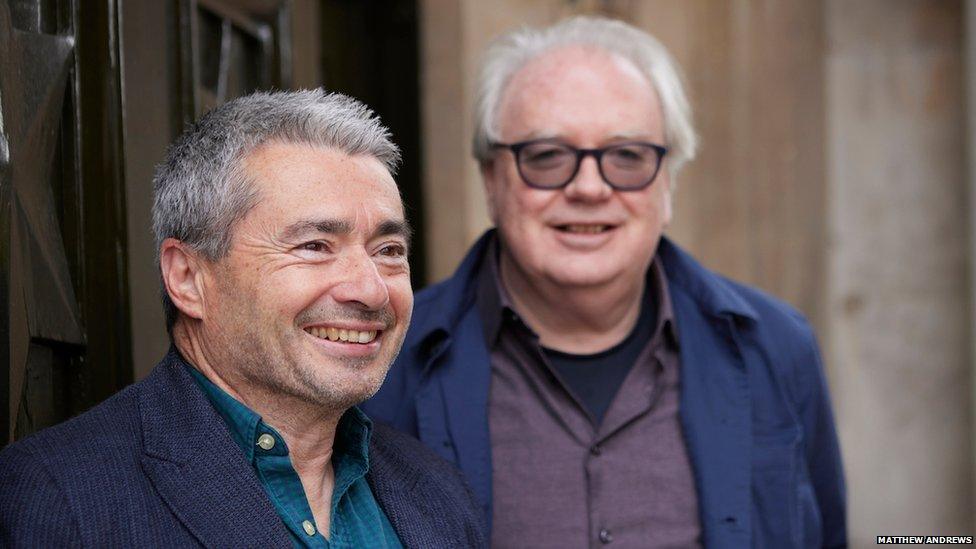
Liam Browne and Seán Doran are ending their Ulysses project in their native city
But the men built an argument with their funders.
"Joyce's novel ends with the famous Molly Bloom soliloquy," said Liam.
"Derry is a female city. Remember the shirt factories? It was the women who were the bread earners - the men were unemployed.
"The power has lain with the women."
The words Molly Bloom utters, her "yes," echo down the years in his native city.
"In Derry, people greet each other by saying 'yes', he pointed out.
"It was great that Creative Europe saw that and accepted it."
- Published2 February 2022

- Published19 November 2019
